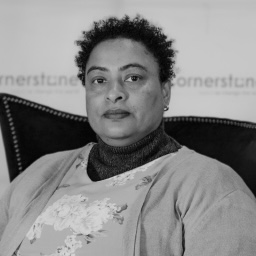Programmes and Qualifications in Sociology and/or Community Development
"Quality is remembered long after the price is forgotten." - Aldo Gucci
Higher Certificate (HCert)
In Community Development
Status for 2025: Both modes are active
Include Disclaimer: Yes
Delivery mode: Contact & Distance (As Per CHE Concession)
Years: Minimum 2 years, maximum 3 years
NQF: 5
Credits: 122
Coordinator: Charmaine Iwu
Bachelor of Arts (BA)
in Community Development
Status for 2025: Both modes are active
Include Disclaimer: Yes
Delivery mode: Contact & Distance
Years: Minimum 3 Years
NQF: 7
Credits: 360
Coordinator: Leo Mapira
BA Honours (BAHons)
in Community Development
Status for 2025: Both modes are active
Include Disclaimer: Yes
Delivery mode: Contact and Distance (As Per CHE Concession)
Years: Minimum 1 year full-time studies or 2 years part-time studies
NQF: 8
Credits: 120
Coordinator: Leo Mapira
Aim
The HCert in Community Development is an active program for 2025, available in both contact and distance learning modes, as permitted by the CHE concession. This qualification, positioned at NQF Level 5, spans a minimum of two years and a maximum of three years, offering a total of 122 credits. Please note that a disclaimer applies to the program details. For further inquiries or assistance, the program coordinator, Charmaine Iwu, is available to support students throughout their studies.
Aim
The BA in Sociology and Community Development is actively available for 2025, offering both contact and distance learning options. This comprehensive 360-credit program is positioned at NQF Level 7 and has a minimum duration of three years. Please be aware that a disclaimer applies to the program details. For any questions or assistance, the program coordinator, Leo Mapira, is available to guide students throughout their studies.
Aim
The BAHons in Community Development is open for enrollment in 2025, with both contact and distance learning modes available under the CHE concession. This 120-credit program, set at NQF Level 8, can be completed in a minimum of one year for full-time students or two years for part-time students. Please note that a disclaimer applies to the program information. For any questions or guidance, the program coordinator, Leo Mapira, is available to assist students throughout their academic journey.
Course Cost
R315 per credit to enable you to choose modules at a pace that fits your budget.
Accreditation
Registered by the DHET. Accredited by the CHE as a 120-credit learning programme for higher education at NQF level 5. HCert in Community Development: Contact mode. SAQA ID: 96414. CHE reference: H/PRO96/E001CAN.
ADMISSION REQUIREMENTS
ADMISSION REQUIREMENTS
- A National Senior Certificate or National Certificate Vocational (certificate pass)
- A Matriculation Certificate or equivalent
- Mature age of 45 years can be admitted, determined by the Recognition of Prior Learning (RPL) portfolio of evidence provided
- National Benchmark Test (NBT) results.
Study Year 1 of 2
Study Year 1 of 2 (NQF 5; 66 Credits)
Period: Semester 1
Core Curriculum
Academic Reading and Writing (15)
Community Development
Community Development: An Introduction (6)
Sociology of Development: An Introduction (6)
Social Transformation (6)
Period: Semester 2
Core Curriculum
Navigating Change and Conflict (15)
Community Development
Understanding Urban and Rural Development (6)
Ethics and Professionalism (12)
Study Year 2 of 2
Study Year 2 of 2 (NQF 5; 56 Credits)
Period: Semester 1
Community Development
Community Fieldwork (20)
Intercultural Communication (6)
Community Research: An Introduction (6)
Period: Semester 2
Community Development
Fundraising and Community Resource Mobilisation (12)
Community Development Project Management (6)
Project Monitoring and Evaluation (6)
Course Cost
R315 per credit to enable you to choose modules at a pace that fits your budget.
Accreditation
Registered by the DHET. Accredited by the CHE as a 360-credit learning programme for higher education at NQF level 7. SAQA ID: 87406.
BA: Contact mode. CHE reference: H/PRO96/E006CAN.
BA: Distance mode. SAQA ID: 87406. CHE reference: H/PRO96/E011CAN.
ADMISSION REQUIREMENTS
- National Senior Certificate (NSC) with a bachelor’s pass or equivalent
- A Matriculation Certificate (with university exemption) or equivalent
- A Higher Certificate or Advanced Certificate or Diploma in a cognate field
- Matriculation Certificate (with university exemption) or equivalent
- National Benchmark Test (NBT) result
ALTERNATIVE ADMISSION REQUIREMENTS (WITH SENATE APPROVAL)
- A National Senior Certificate or National Certificate Vocational with a diploma pass (or equivalent) combined with the NBT results
- Mature age of 23 and over during the first year of studies and a National Senior Certificate (or equivalent). The conditions of the Recognition of Prior Learning (RPL) Policy for access and the results of the NBT are determining factors for admission. Contact the admissions office regarding RPL
- Mature age of 45 years can be admitted, determined by the RPL conditions and the results of the NBT
Applicants in the first category under Alternative Admission Requirements must register for the Extend ed Programme for Academic Development. The Programme extends the completion of the prescribed subjects over a minimum of four years.
Students who are admitted on the basis of prior learning and who want to complete the degree in three years, but who fail more than 20% of modules taken during the first semester, are required to take the first year over two years.
Year 1: Semester 1
Study Year 1 of 3
(Basic level; NQF5; 120 Credits)
Period: Semester 1
Core Curriculum Academic Development(15)
Sociology & Community Development Sociology: An Introduction (15)
Choose two of the following options (15X2)
Counselling Counselling & Life Skills (15)
Communication Interpersonal Communication (15)
English English Language Studies (15)
Theology Biblical Studies (15)
Psychology Developmental Psychology and Literacies (15)
OR
English Creative English writing (15)
OR
Theology Theology: An Introduction (15)
OR
Psychology PSIN5151 Psychology: An Introduction (15)
Year 1: Semester 2
Study Year 1 of 3
(Basic level; NQF5; 120 Credits)
Period: Semester 2
Core Curriculum
Ethics and Global Citizenship (15)
OR
Navigating Change and Conflict (15)
OR
Group Studies and Communication (15)
OR
Worldviews of the South (15)
Sociology Diversity Studies (15)
Continue with the same selected options as in Semester 1 (15X2)
Counselling Family and Development (15)
OR
Communication Contextual Media Studies and Literacies (15)
OR
English Creative English writing (15)
OR
Theology Theology: An Introduction (15)
OR
Psychology PSIN5151 Psychology: An Introduction (15)
Year 2: Semester 1
Study Year 2 of 3
(intermediate level; NQF6; 120 Credits)
Period: Semester 1
Sociology & Community Development
Social Change and Transformation (15)
Sociology of Development (15)
Community Development
Sociology of Development (15)
Continue with one option of the two options selected in year one (15X2)
Counselling Interpersonal Skill (15) and Communication and Family Counselling (15)
OR
Communication Social Media (15) and
Writing and Editing (15)
OR
English Text and Context (15) and Historical English Literature (15)
OR
Theology Hermeneutics (15) and Christian Spirituality Foundations (15)
OR
Psychology Research Methods and Statistics: An Introduction (15) and Community Psychology (15)
Year 2: Semester 2
Study Year 2 of 3
(intermediate level; NQF6; 120 Credits)
Period: Semester 2
Sociology & Community Development Sociology of Institutions (15)
Community Development Community and Resource Mobilisation (15)
Continue with the same selected option as in Semester 1 (15X2)
Counselling Child (15) and Adolescent Counselling and Crisis Intervention and Trauma Counselling (15)
OR
Communication Professional Skills (15) and Integrated Marketing Communication (15)
OR
English English Literary Studies: An Introduction (15) and Contemporary English Literature (15)
OR
Theology Pentateuch or Synoptic Gospels (15) and Human Identity and Christology (15)
OR
Psychology Psychotherapy (15) and Developmental Psychology 2 (15)
Year 3: Semester 1 & 2
Study Year 3 of 3
(advanced level; NQF7; 120 Credits)
Period: Semester 1
Core Curriculum Research Methodology (15)
Sociology
Community Development in Practice (15)
Population and Development (15)
Urban and Rural Development (15)
Period: Semester 2
Core Curriculum Research Project(15)
Sociology
Sociology Fieldwork (15)
Contemporary Sociology Theory (15)
Development Challenges in Africa (15)
Course Cost
R315 per credit to enable you to choose modules at a pace that fits your budget.
Accreditation
Registered by the Department of Higher Education and Training (DHET). Accredited by the Council on Higher Education (CHE) as a 120-credit learning programme for higher education at NQF level 8. BAHons in Community Development: Contact mode. SAQA ID: 97901; CHE reference: H/PRO96/E018CAN.
ADMISSION REQUIREMENTS
- A candidate must have complied with all the requirements of an undergraduate degree, or equivalent, before the beginning of the academic year for which he/she has been selected
- Third-year key modules in social sciences must have passed with a minimum of 60%
- As per the RPL Policy, no more than 10% of applicants who do not have the necessary 60% grade for third year in social science (or equivalent) can be admitted into the programme, if they have obtained work or life experience which qualifies them to be admitted as post-graduate students
- Applicants must provide evidence of computer literacy. Candidates can be required to take a computer course to improve their computer skills
- All successful applicants are required to complete a pre-programme assignment to determine the level of academic support that is required. In addition, it prepares students for the first week’s discussions.
Option 1: 1-Year Full-Time
Study Year 1 of 2 (NQF 8; 120 Credits)
Option 1: One Year Full-Time
Period: Semester 1
Community Development
Social Theory for Community Development (15)
Policy and Legislative Framework (15)
Sociology Research Project A (15)
Social Research Methods (15)
Period: Semester 2
Community Development
Youth Development (15)
Organisational Management (15)
Sociology Research Project B (15)
Sustainable Community Development (15)
Option 2: (Year 1 of 2) Part-Time
Study Year 1 of 2 (NQF 8; 120 Credits)
Option 2: Two Years Part-Time
Period: Semester 1
Community Development
Social Theory for Community Development (15)
Policy and Legislative Framework (15)
Period: Semester 2
Community Development
Youth Development (15)
Organisational Management (15)
Option 2: (Year 2 of 2) Part-Time
Study Year 1 of 2 (NQF 8; 120 Credits)
Option 2: Two Years Part-Time
Period: Semester 1
Community Development
Sociology Research Project A (15)
Social Research Methods (15)
Period: Semester 2
Community Development
Sociology Research Project B (15)
Sustainable Community Development (15)
THE SOCIOLOGY & COMMUNITY DEVELOPMENT DEPARTMENT

Global cutting-edge best practices in business

Excellent student and stakeholder support

Ethical integrity for all
Welcome to Sociology and Community Development at Cornerstone Institute offers three programs that provides for specialization as Community Development Worker (CDWs) and/or Community Development Practitioners (CDP) including but not limited to Youth Development Workers, Probation Officer, Community Liaison Officer, Community/Citizen Journalist, Community Volunteer, Child and Youth Care Worker (CYCW), Community Development Facilitator, Community Service Workers, Community Service Worker, Schools Development Worker, Gerontology Care Worker, Community Health Workers, Project Monitoring & Evaluation Officer, Community Activist/Advocate, Rural/Urban Planners, Community Field Workers, Project, Community Development Practitioners, Project Director/Manager etc.
- Get a Higher Certificate in Community Development (NQF Level 5) to enter into the community development practice with opportunities for further studies.
- A National Senior Certificate or National Certificate Vocational (certificate pass)
- A Matriculation Certificate or equivalent
- Mature age of 45 years can be admitted, determined by the Recognition of Prior Learning (RPL) portfolio of evidence provided
- Get a Bachelors of Arts in Sociology & Community Development (NQF Level 7) to qualify and register as a Community Development Worker (CDW) or Community Development Practitioner with the South African Council for Social Services Practitioners (SACSSP https://www.sacssp.co.za/).
- Get a Bachelor of Honors in Community Development (NQF Level 8) to qualify and register as a Community Development Worker (CDW), Community Development Practitioner (CDP) in the public and other development sectors.
- All our community development qualifications are accredited by the South African Council for Higher Education (CHE), are recognized internationally, and they all provide for registration as a Community Development Practitioner (CDP) and Community Development Worker (CDW) with the South African Council for Social Services Practitioners (SACSSP https://www.sacssp.co.za/).
For inclusive development, social justice and local democratic governance in public and development sectors, and for greater, fulfilling and dynamic careers in the public and development sectors in South Africa and abroad enroll with Cornerstone Institute.
THE SOCIOLOGY & COMMUNITY DEVELOPMENT TEAM

Samantha Moyo
Academic Lecturer
- Phone:+27 (0)21 448 0050
- Email:Samantham@cornerstone.ac.za

Leo Mapira
Acting HoD, Sociology & Community Development

Leo Mapira
Acting HoD, Sociology & Community Development
- Phone:+27 (0)21 448 0050
- Email:leom@cornerstone.ac.za

Allistair Brown
Academic Lecturer
- Phone:+27 (0)21 448 0050
- Email:Allistairb@cornerstone.ac.za

Moses Moyo
Academic Lecturer
- Phone:+27 (0)21 448 0050
- Email:Mosesm@cornerstone.ac.za

Thandokazi Zweni
Intern - Sociology and Community Development

Thandokazi Zweni
Intern - Sociology and Community Development
- Phone:+27 (0)21 448 0050
- Email:Thandokaziz@cornerstone.ac.za

Dr. Gordon Igbokwe
Senior Lecturer
Dr Gordon Igbokwe is a Research Fellow and Senior Sociology and Community Development Department Lecturer at Cornerstone Institute. He actively teaches online and in-person classes, supervises senior undergraduate and postgraduate research projects, and coordinates and administers the Community Development and Sociology programs.
With extensive experience in teaching and learning, Dr Igbokwe is a versatile leader whose training spans Economics, Development Studies, Sociology, and Public Health. He is a culturally transnational agent of change, dedicated to collaborating with developing communities to enhance their strengths and propose solutions to their challenges without imposing on or erasing their traditions. As global governance evolves, Dr Igbokwe is committed to acquiring world-class knowledge and skills to accelerate systemic change in Africa.
Dr Igbokwe was awarded the National Research Foundation DST Innovation Doctoral Scholarship from 2016 to 2017. He holds a Master of Arts in Development Studies and a Bachelor of Arts (Honours) from the University of the Western Cape (UWC) and a BSc. in Economics from the University of Nigeria, Nsukka. He also has a Certificate in Health in Numbers from Harvard University School of Medicine, USA, and an Honors and master’s in development studies from the University of the Western Cape. His PhD from the University of the Western Cape focuses on the socio-economic integration experiences and skills contributions of highly skilled migrants in South Africa.
Dr Igbokwe has published several academic papers and collaborated on research on health inequalities, migration and climate change, and poverty studies. He is a Postdoctoral Fellow working on youth empowerment and skills transfer as a means to sustainable development.
A dedicated and versatile researcher, Dr Igbokwe specializes in qualitative research and quantitative analysis. His expertise includes social policy, Migration and cultural studies, gender studies, ethnicity, and identity. He has extensive experience in community development initiatives and addressing global societal challenges. Committed to promoting social justice and conflict resolution through human rights advocacy, he is skilled in developing and implementing education policies and strategies. Dr Igbokwe is passionate about environmental sustainability and leveraging digital humanities for impactful research. He is proficient in addressing public health policy issues and Youth Empowerment to contribute to positive social change.
- Phone:+27 (0)21 448 0050
- Email:Gordoni@cornerstone.ac.za

Henrietta Settler
Lecturer
- Phone:+27 (0)21 448 0050
- Email:Henriettas@cornerstone.ac.za


frequently asked questions
General Information
To apply you may visit our website here, select your preferred course and click on apply now. Our entire application and registration process is online.
Applications for the 2025 academic year will close on 30 January 2025.
- Higher Certificate in Community Development
- Certified ID/Passport
- Certified Grade 12 certificate or NQF equivalent.
Course Details
Yes, you will be eligible for the Bachelor of Arts in Sociology and Community Development. After you complete the Bachelor of Arts in Sociology and Community Development you will be eligible for the Bachelor of Arts Honours in Community Development, subject to specific entry requirements.
For every credit, 10 hours of study is required, i.e. for a 12-credit module, 120 hours of study is required.
The three qualifications we offer (Higher Certificate, Bachelor of Arts and Bachelor of Arts Honours) are all professional qualifications in Community Development
Theories of poverty and inequality, development theories, participatory development methodologies across the rural and urban settings; youth and development, participatory, community research methods, work integrated learning (WIL), practical research projects, project management; project monitoring and evaluation, community resource mobilisation, organisational development, contemporary sociological theory, social theory for community development etc.
Each module is assessed through online formative assessments (e.g. tests, critical essays and group projects) and through online summative assessments (i.e. examinations).
We have work integrated learning (WIL) projects that help students to bridge the gap between theory and practice. For BA Honours in Community Development we have both WIL and a research project
Our modules are reviewed every semester to make sure that the learning resources are not more than 5 years old, they are relevant to the South African context and the broader African context of community development. We also compliment these resources with globally relevant resources.
Financial Information
The cost of the Higher Certificate is R330 per credit, for the Bachelor of Arts is R590 and for Bachelor of Arts Honours its R600 per credit to enable you to choose modules at a pace that fits your budget. You are able to structure your payment in line with the modules which you select.
You are able to make an application for financial aid and we will endeavour to secure funding for you from external sources.
Student Support
We have a capable team of lecturers, supervisors and tutors to provide mentorship and guidance on academic and research papers.
If you are struggling academically, you can reach out to our Faculty Administrator Thandokazi Zweni (thandokaziz@cornerstone.ac.za) who will help to direct you here. For student wellness support, you can contact Student Services student development and support.
Online Study
Good Wi-Fi, a reliable laptop, a working laptop camera, Office 365 and a quiet place to work
The digital library, EBSCOHost, which offers a vast expanse of scholarly resources is freely available to students. This premier online research platform provides academic journals, magazines, newspapers, e-books, and much more.
Certain prescribed ebooks are available by ordering from online bookstores. In addition, hard copy physical resources can be found in our on-campus library.
It is helpful to set time aside at the start of a semester to ensure your set up for online teaching and learning is properly in place and also to spend some time on our FUNDA LMS.
Lectures and Interaction
Live online lectures take place on weekdays. A timetable for all the modules will be published before the start of each semester. Lectures are recorded and can be accessed on our FUNDA learning management system at a later time, if students are unable to attend the live lecture.
Yes, lecturers can be contacted through our learning management system or via the class WhatsApp groups. Lecturers are also available for individual face-to-face or online interaction when necessary.
Technical Support
What happens if I am experiencing technical difficulties?
For any technical issues we have our Technology team available on helpdesk@cornerstone.ac.za/.
Our Academic Administrator thandokaziz@cornerstone.ac.za is also available to assist if you experience any problems on our FUNDA learning management system.
THOUGHT LEADERSHIP ARTICLES

From Volunteering to Profession: The Importance of Professional Community Development
Senior Lecturer
Community development in South Africa has evolved from volunteerism to a professional field, where practitioners address social issues, empower communities, and promote sustainable progress.
Read MoreFrom Volunteering to Profession: The Importance of Professional Community Development
Senior Lecturer

Partnership with for wellness support
Cornerstone Institute is partnering with Wynberg Boys' High Rugby for wellness support and is sponsoring the rugby jerseys to promote social justice and education.
Read MorePartnership with for wellness support

The Battle Against Misinformation and Disinformation: Unveiling Our Role in Spreading and the Importance of Accurate Information
Misinformation spreads quickly online, impacting trust and public issues. Media Studies degrees provide skills to analyze, research, and combat false information effectively.
Read MoreThe Battle Against Misinformation and Disinformation: Unveiling Our Role in Spreading and the Importance of Accurate Information

Welcome to Cornerstone Institute Newsletter!
This edition showcases our commitment to education, innovation, and community impact with updates on recent achievements, projects, and student successes. We appreciate your support and look forward to sharing more inspiring updates with you.
Read MoreWelcome to Cornerstone Institute Newsletter!
Application Enquiries
Sociology & Community Development
Study with us and earn a reputable, widely recognized degree, accredited and registered by top institutions such as the Council on Higher Education (CHE), The Department of Higher Education & Training (DHET), and other leading organizations.
